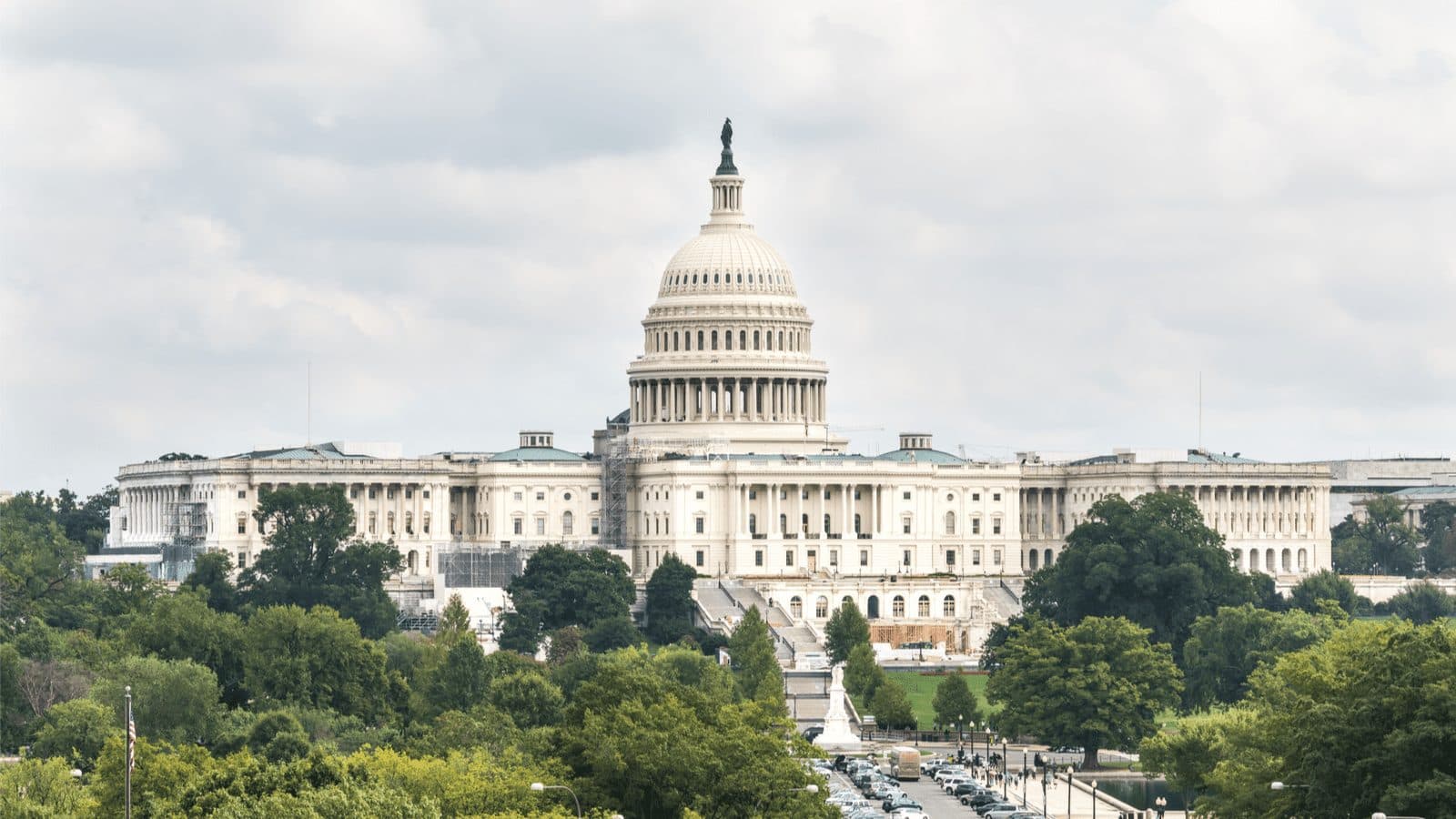Crypto Industry Will Move Offshore If Congress Doesn’t Act, Executives Warn
Digital asset company executives asked Congress to consider how the lack of regulation could impact investors and innovation

Source: Shutterstock
- Executives from six major digital asset companies testified on the state of the industry before Congress Wednesday
- House Financial Services Committee members have different approaches to crypto
As US policymakers continue to wrestle with how to regulate the growing digital asset industry, executives from major cryptocurrency companies appeared before Congress on Wednesday to provide, and request, clarity.
Rep. Maxine Waters (D-Calif.), head of the House Financial Services Committee, called the hearing, which was titled “Digital Assets and the Future of Finance: Understanding the Challenges and Benefits of Financial Innovation in the U.S.”
Rep. Patrick McHenry (R-NC) was one of several lawmakers that expressed a more favorable view of the emerging asset class.
“I ask my friends on the Hill, do you know enough about this?” he said, referring to his committee colleagues, whom he argued lacked enough understanding of the technology to be able to create regulation.
Bitfury CEO Brian Brooks, who formerly acted as comptroller of the currency under President Donald Trump, before a short stint at Binance.US, pleaded with lawmakers to look past the investment side of the industry.
Lawmakers must consider the innovation that blockchain technology can bring to governments, businesses and citizens, he said. The present financial system is not without risks, costs and safety problems, Brooks said.
“Shouldn’t we take seriously the possibility that algorithms and open-source software that take a measure of human error, greed, negligence, fraud and bias out of the system might actually make the system better, on net, even if there are some new risks being presented that need to be understood and regulated?” he asked the committee.
FTX CEO Sam Bankman-Fried noted that cryptocurrency technology can help solve many of the issues that Congress has already identified.
“When you look at the number of people who are underbanked or unbanked in the United States, and globally, it’s indicative of a system that does not work for everyone,” Bankman-Fried said. “Cryptocurrencies do provide a potential way to address a number of these issues, making it easier, cheaper, faster and more equitable for people to do what they need to do to manage their financial lives.”
Rep. Alexandria Ocasio-Cortez (D-NY) had doubts.
“What do you say to the folks that say, ‘This doesn’t seem like a new financial system per se but an expansion of the old one?’” she asked when questioning Jeremy Allaire, the CEO of payments company Circle, who spoke after Bankman-Fried.
“I really do believe we are building a new global economic infrastructure layer,” Allaire responded, adding that regulation needs to become more clear if policymakers want companies to continue innovating.
If the US does not act quickly enough, cryptocurrency firms are going to move to other nations with more favorable regulations, Brooks said, pointing to the lack of a bitcoin spot ETF. When a spot product is already available in other nations, there is nothing stopping issuers from taking their business elsewhere, he argued.
“There are some products that are legal in other countries and are just not legal here,” Brooks said. “If you’re a developer of ETFs there’s no fuzzy line, it’s super clear: You cannot do that here, so you have to go abroad.”
Other testifiers included Coinbase Global Chief Financial Officer Alesia Haas, Paxos CEO Chad Cascarilla and Stellar Development Foundation CEO Denelle Dixon.
A full recording of the hearing is available here.
Get the day’s top crypto news and insights delivered to your inbox every evening. Subscribe to Blockworks’ free newsletter now.






